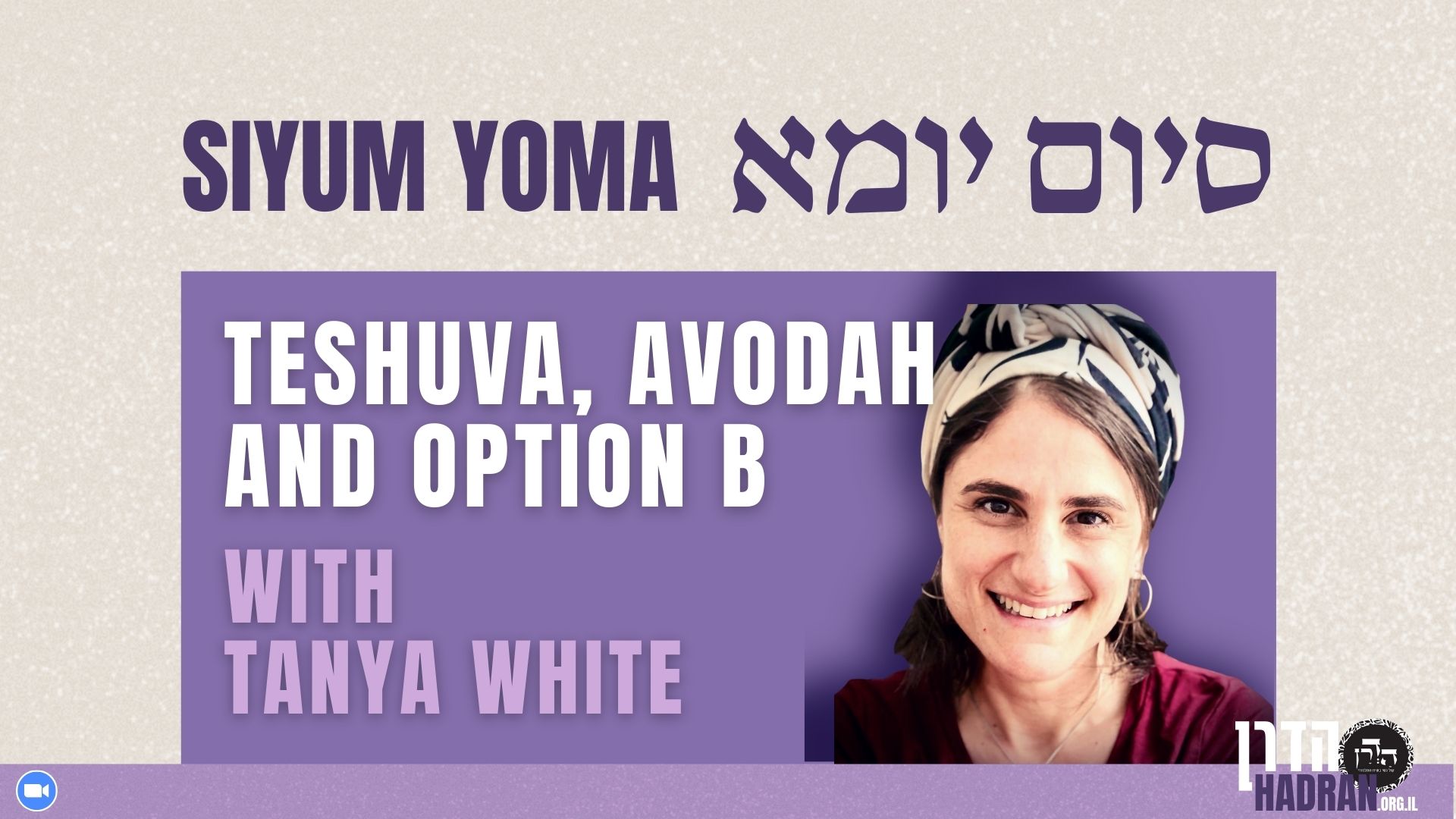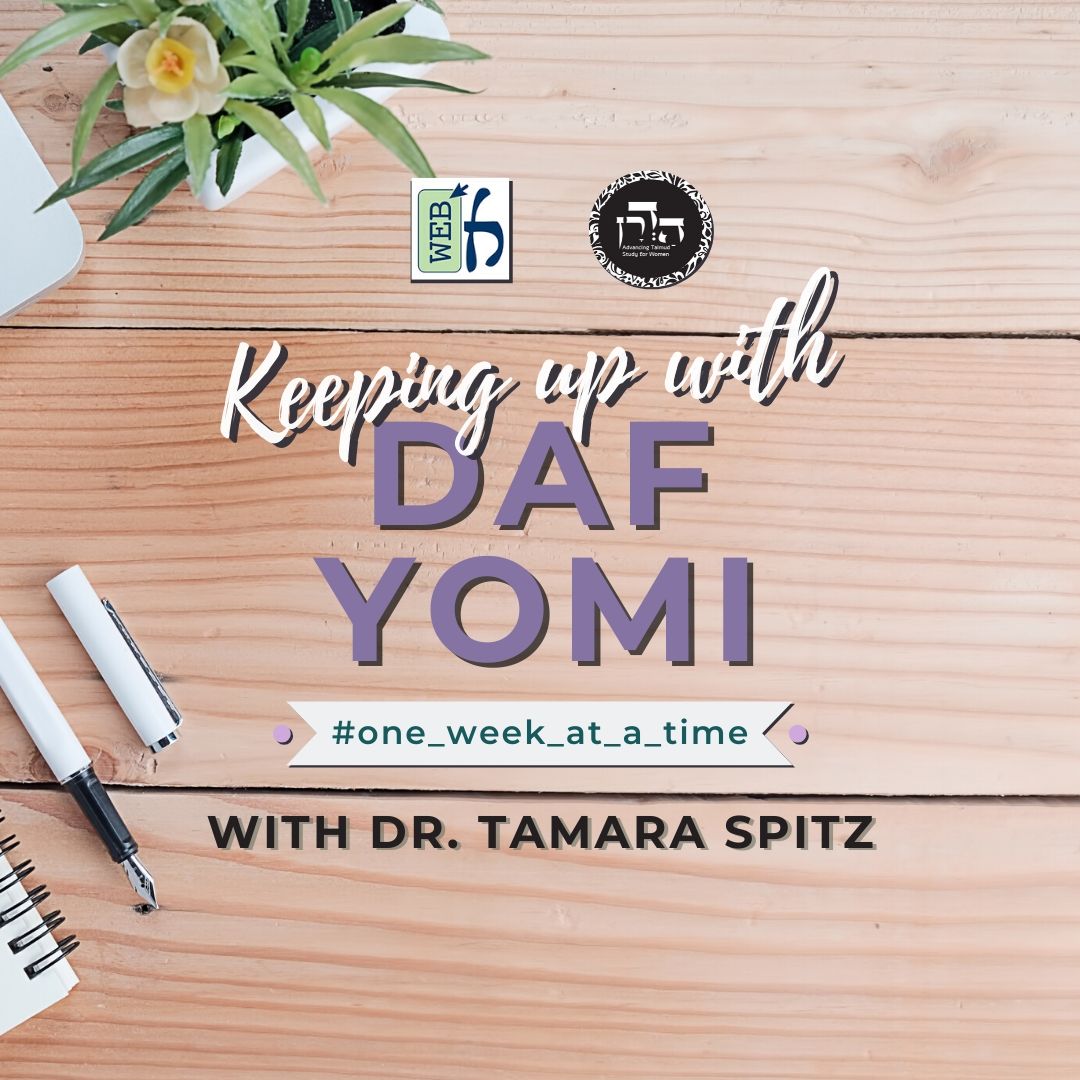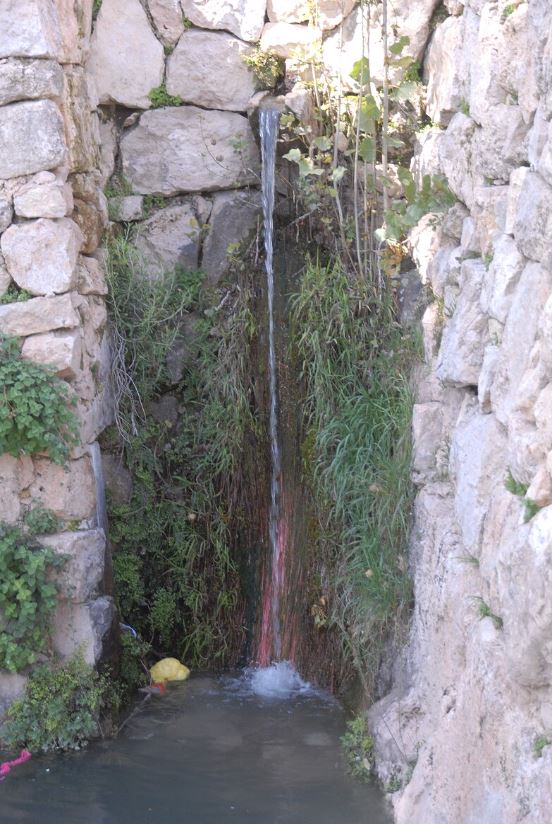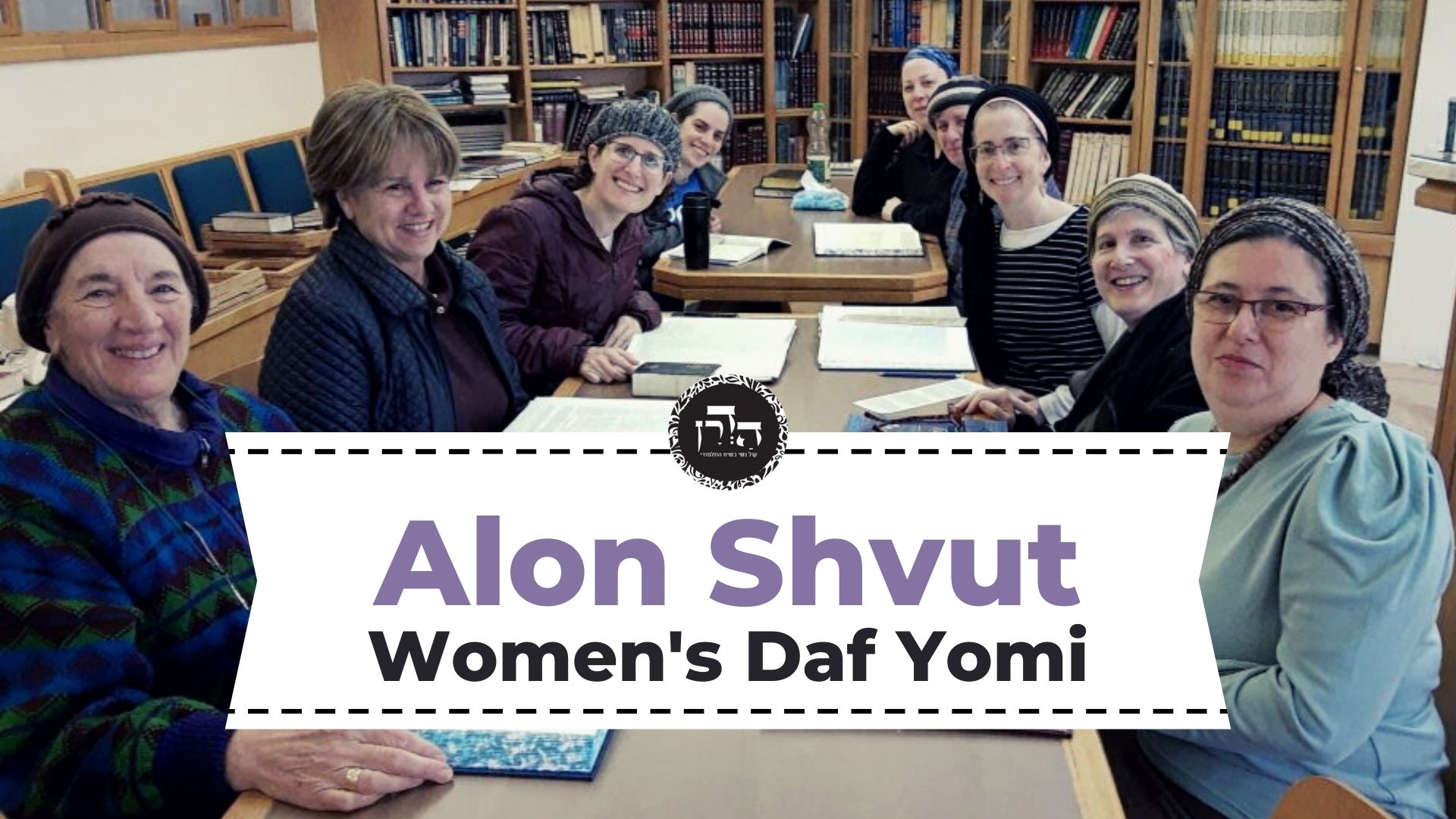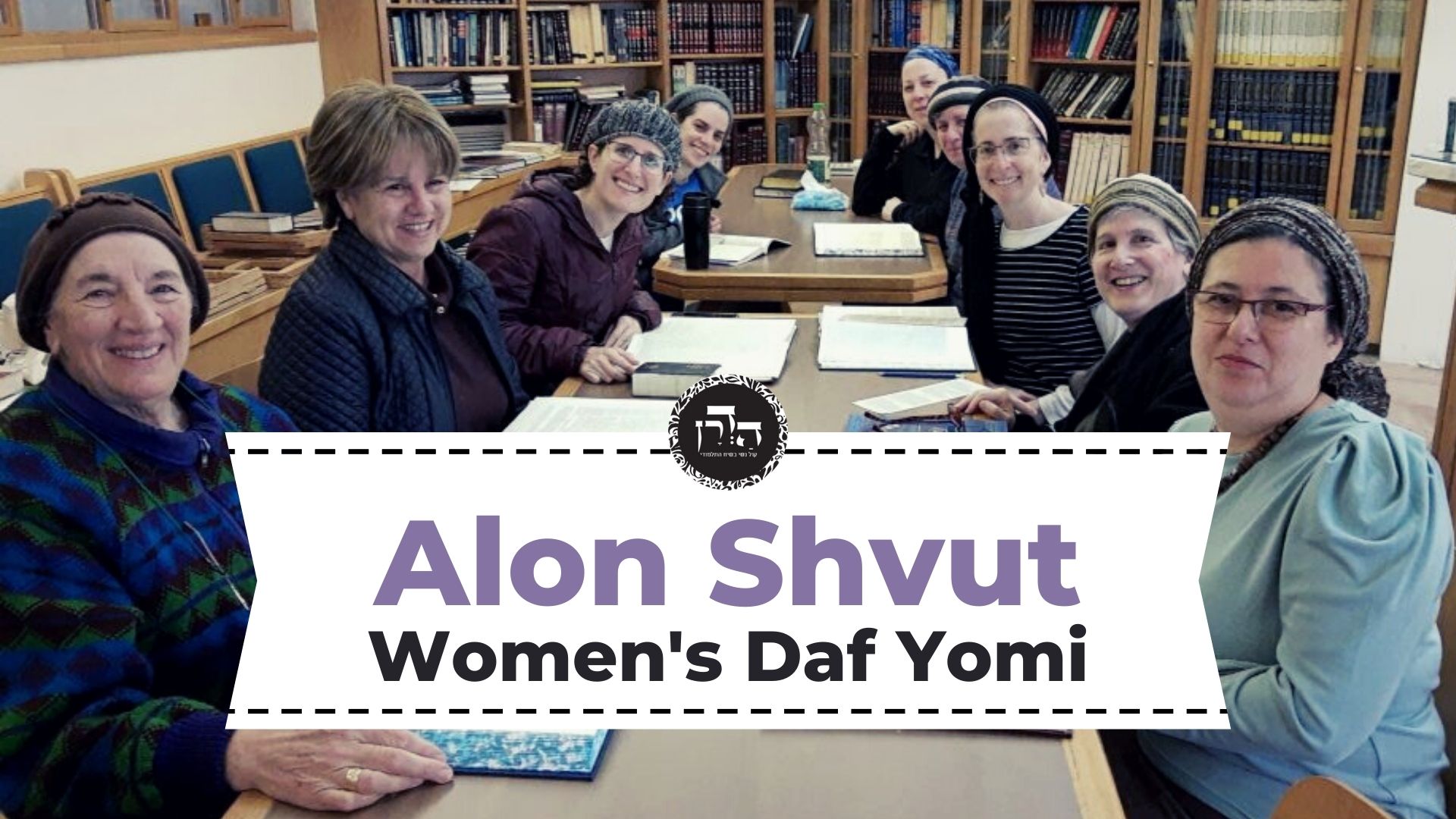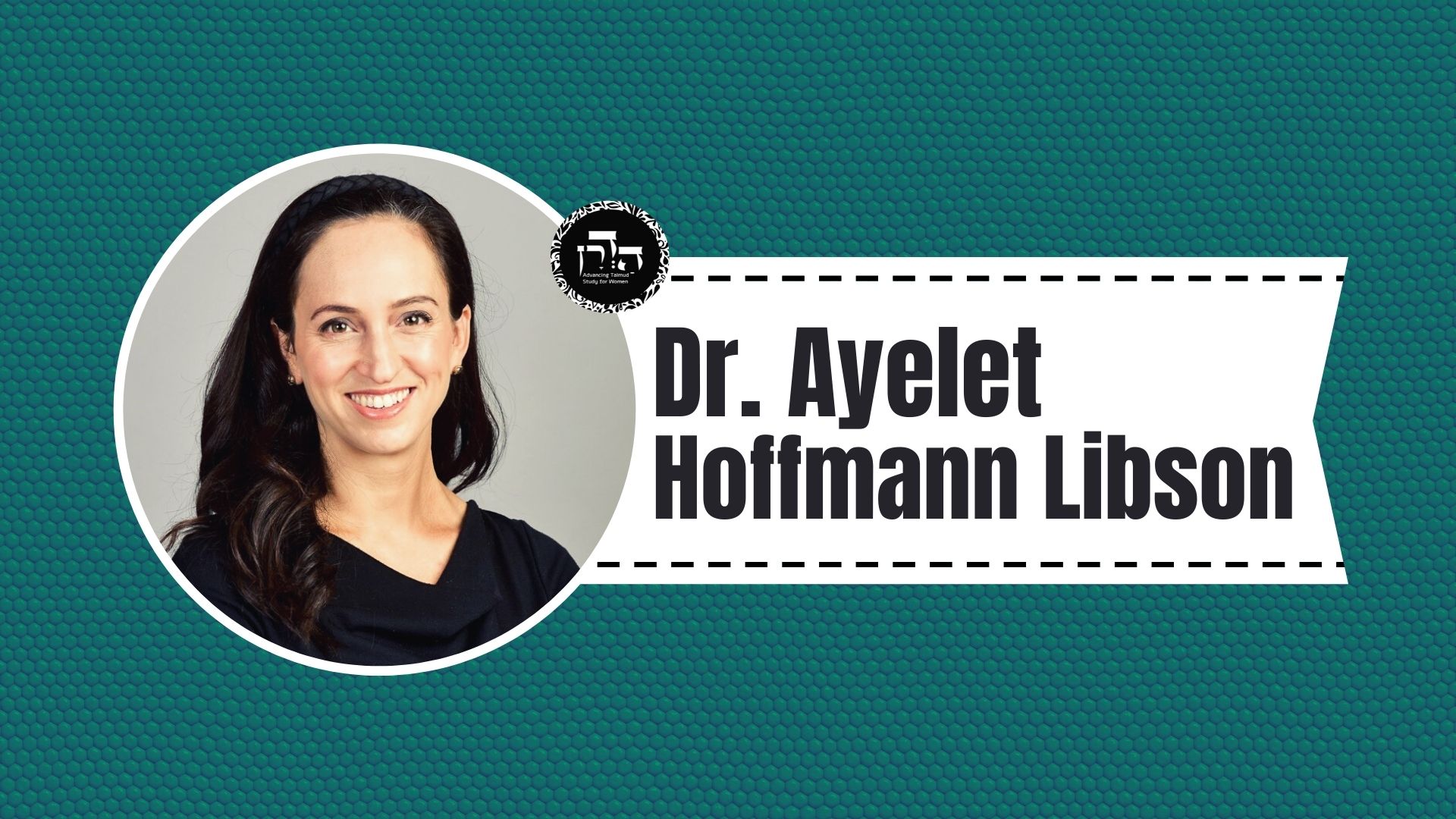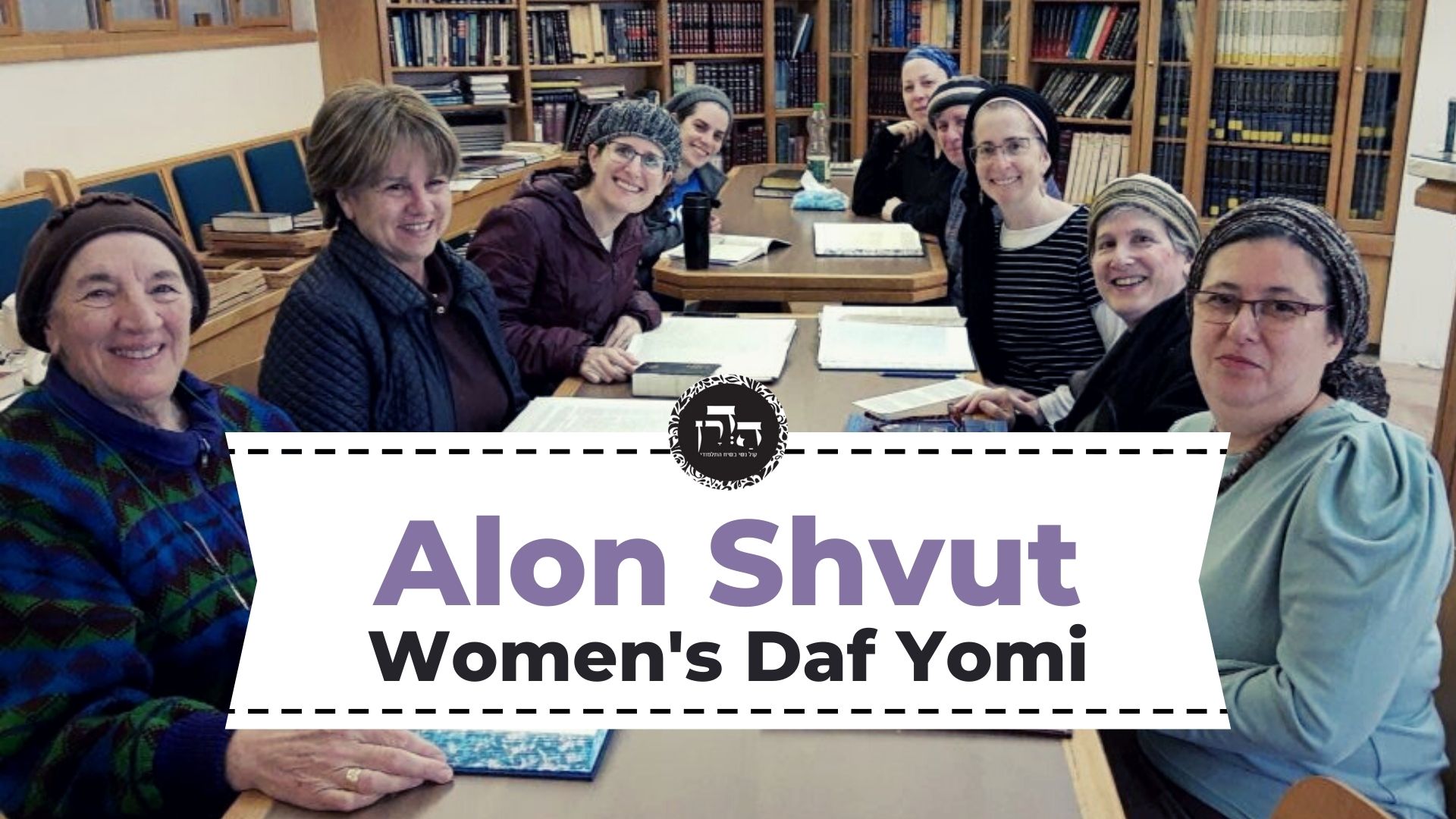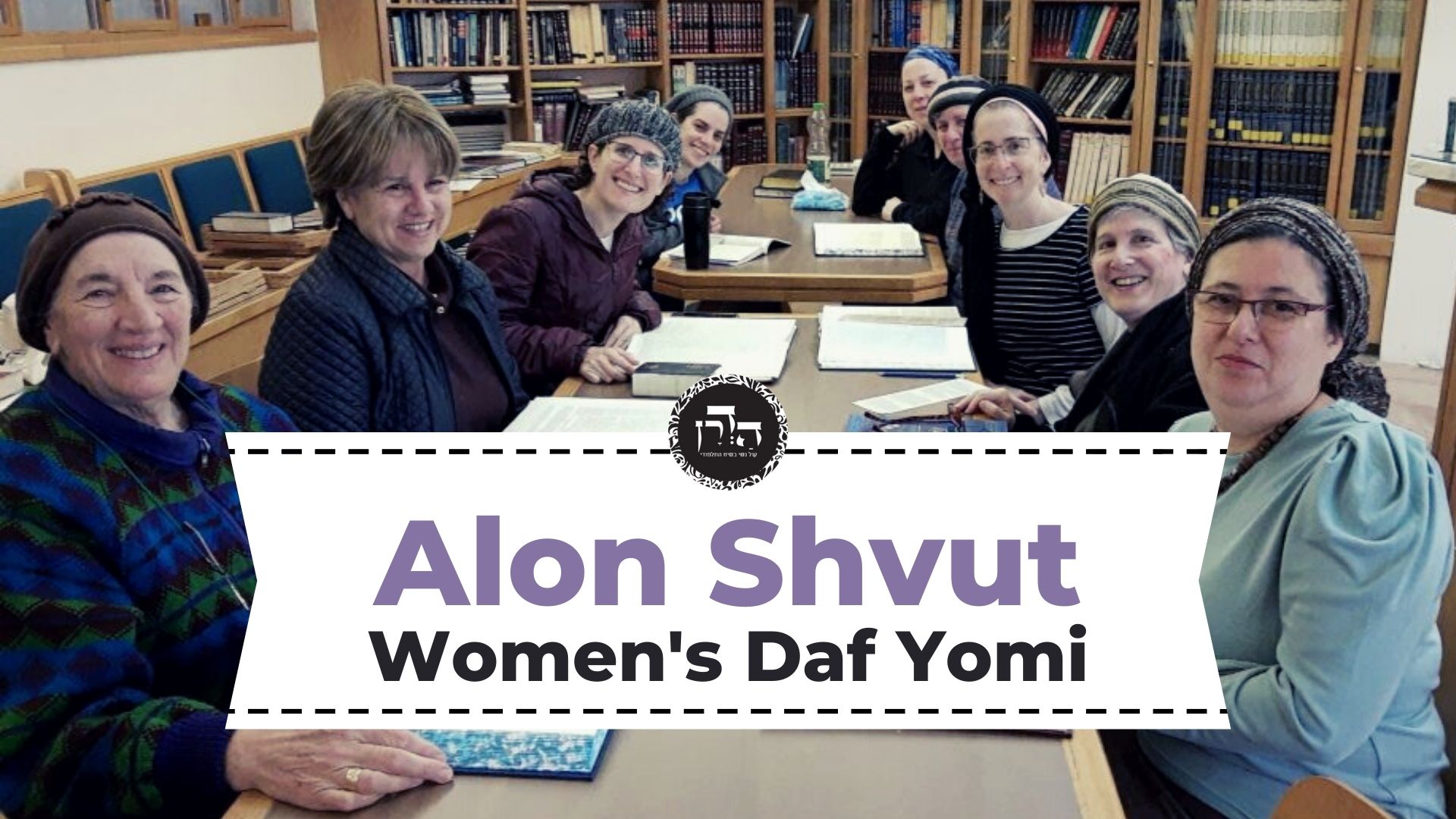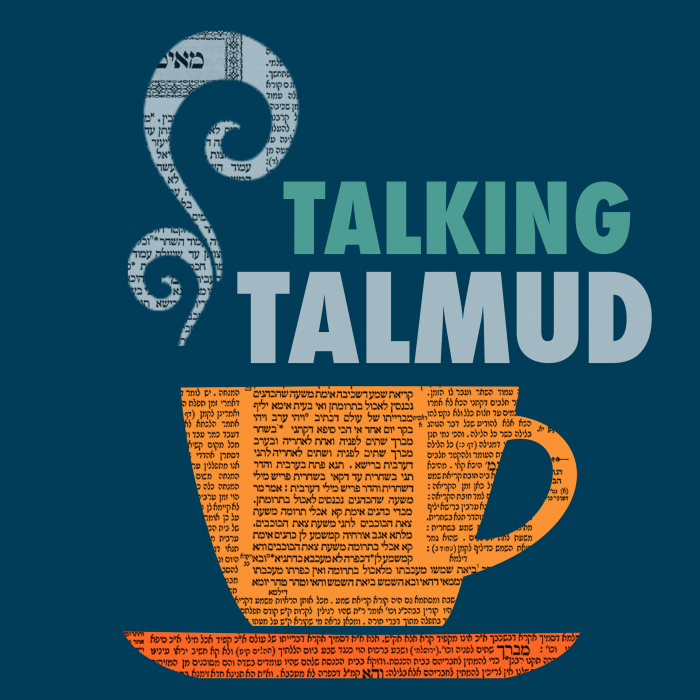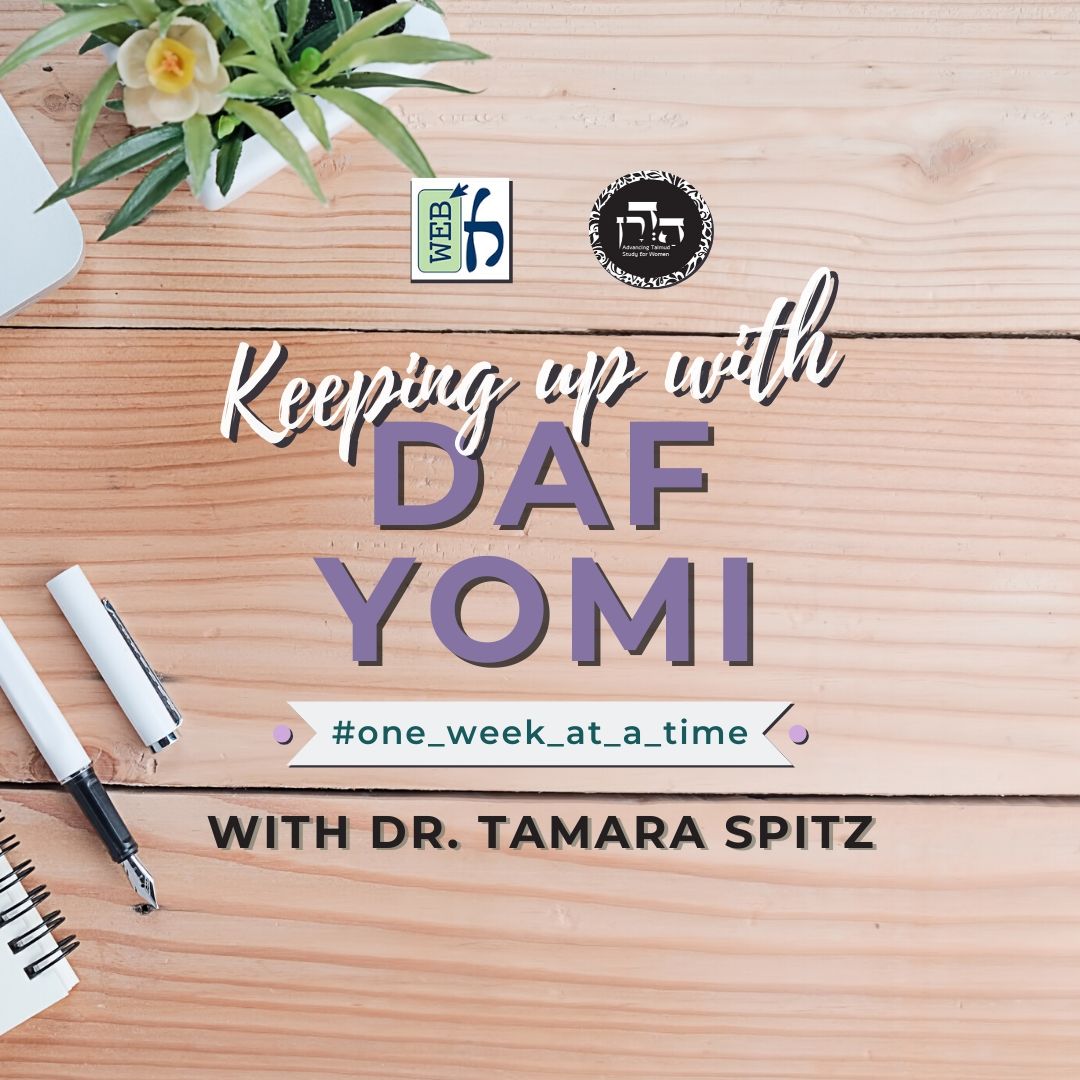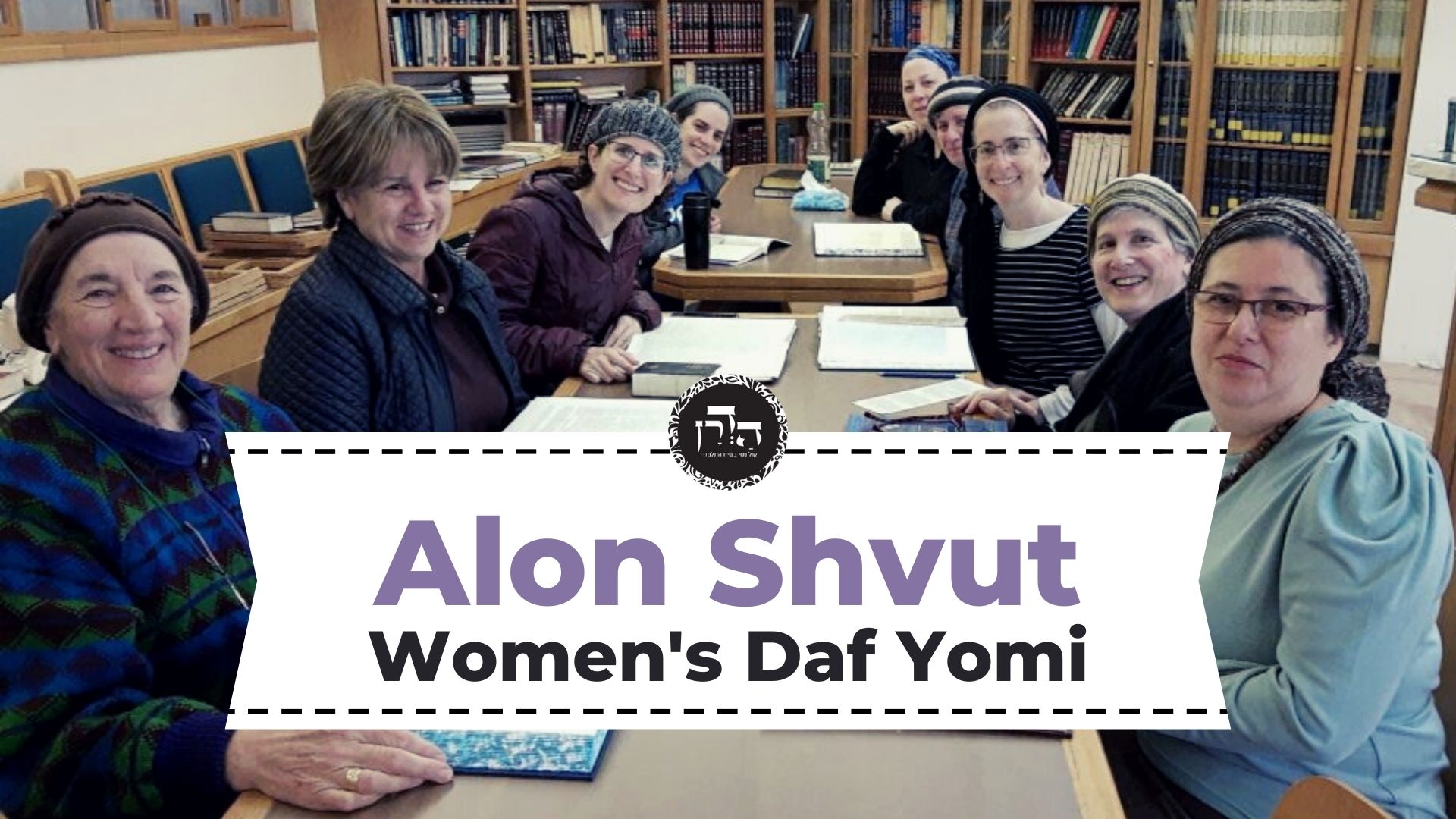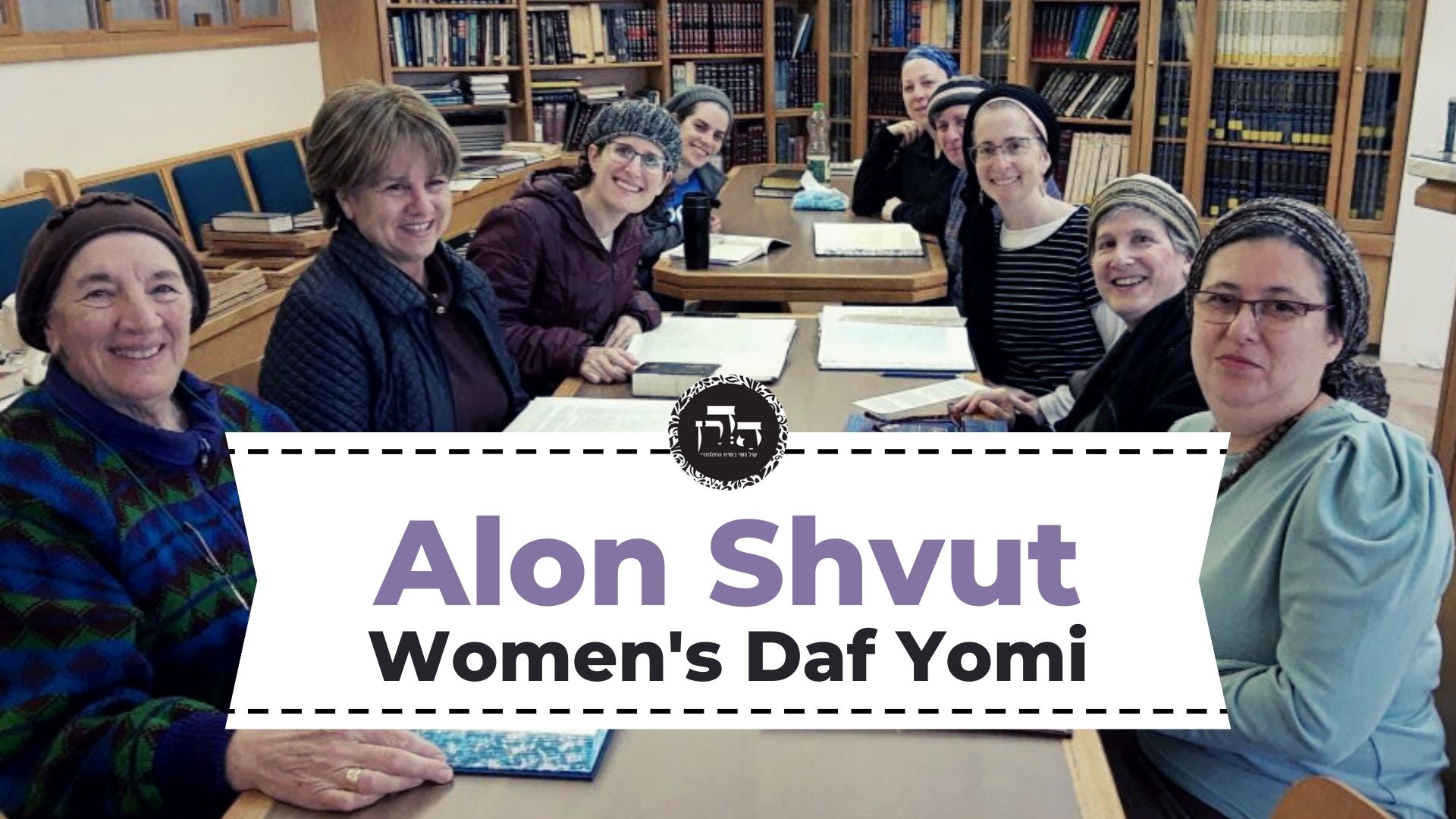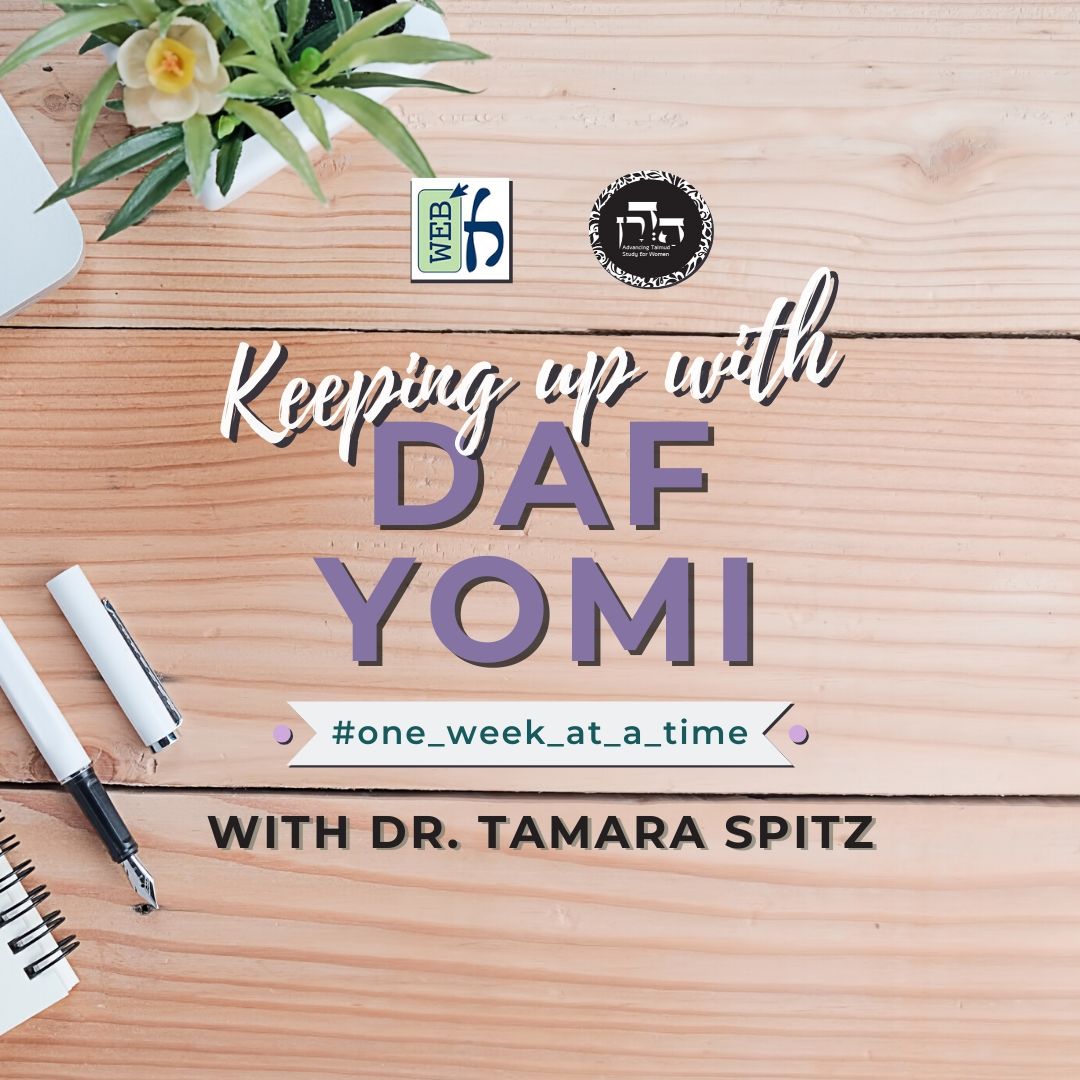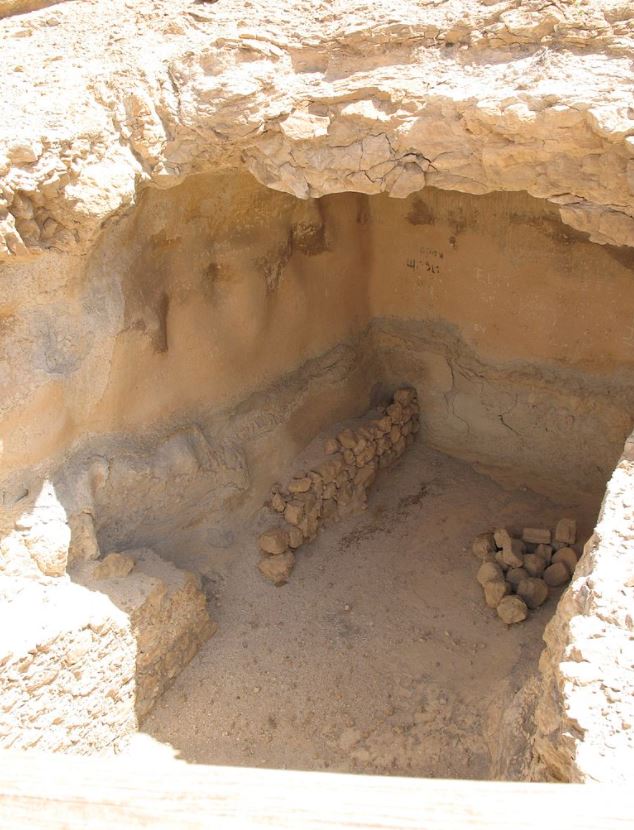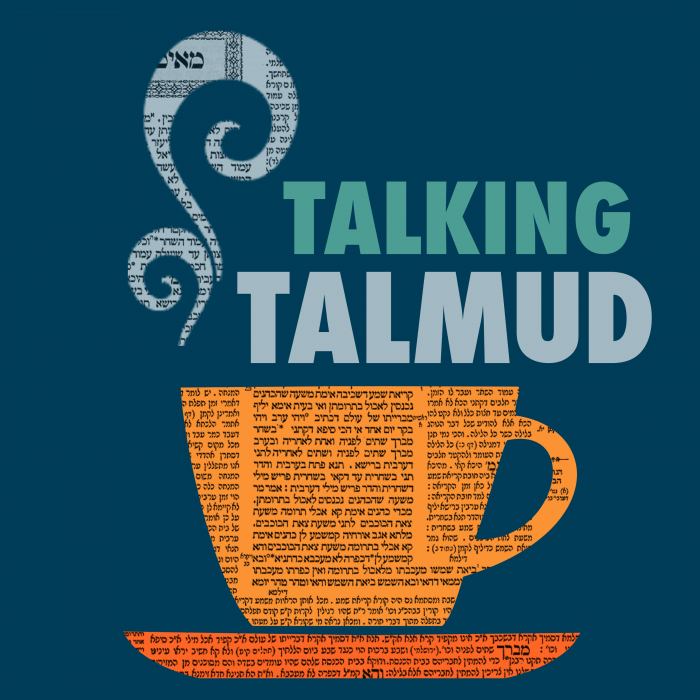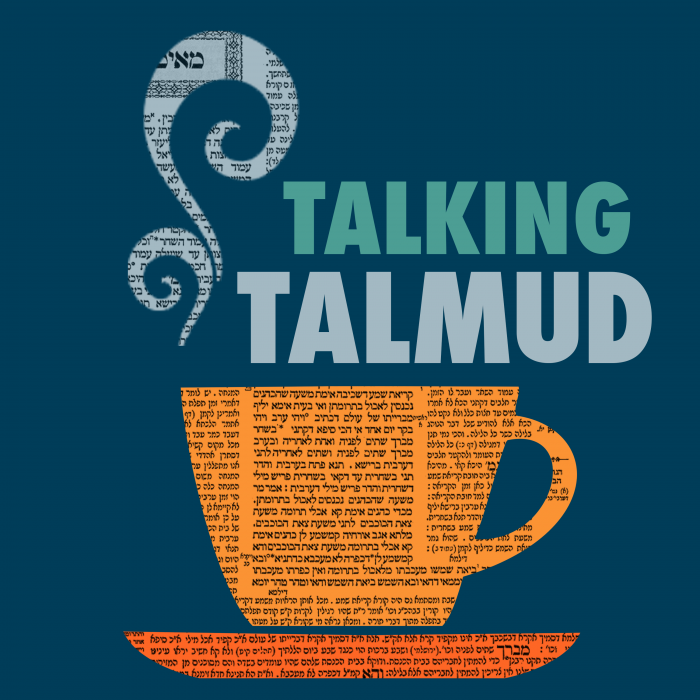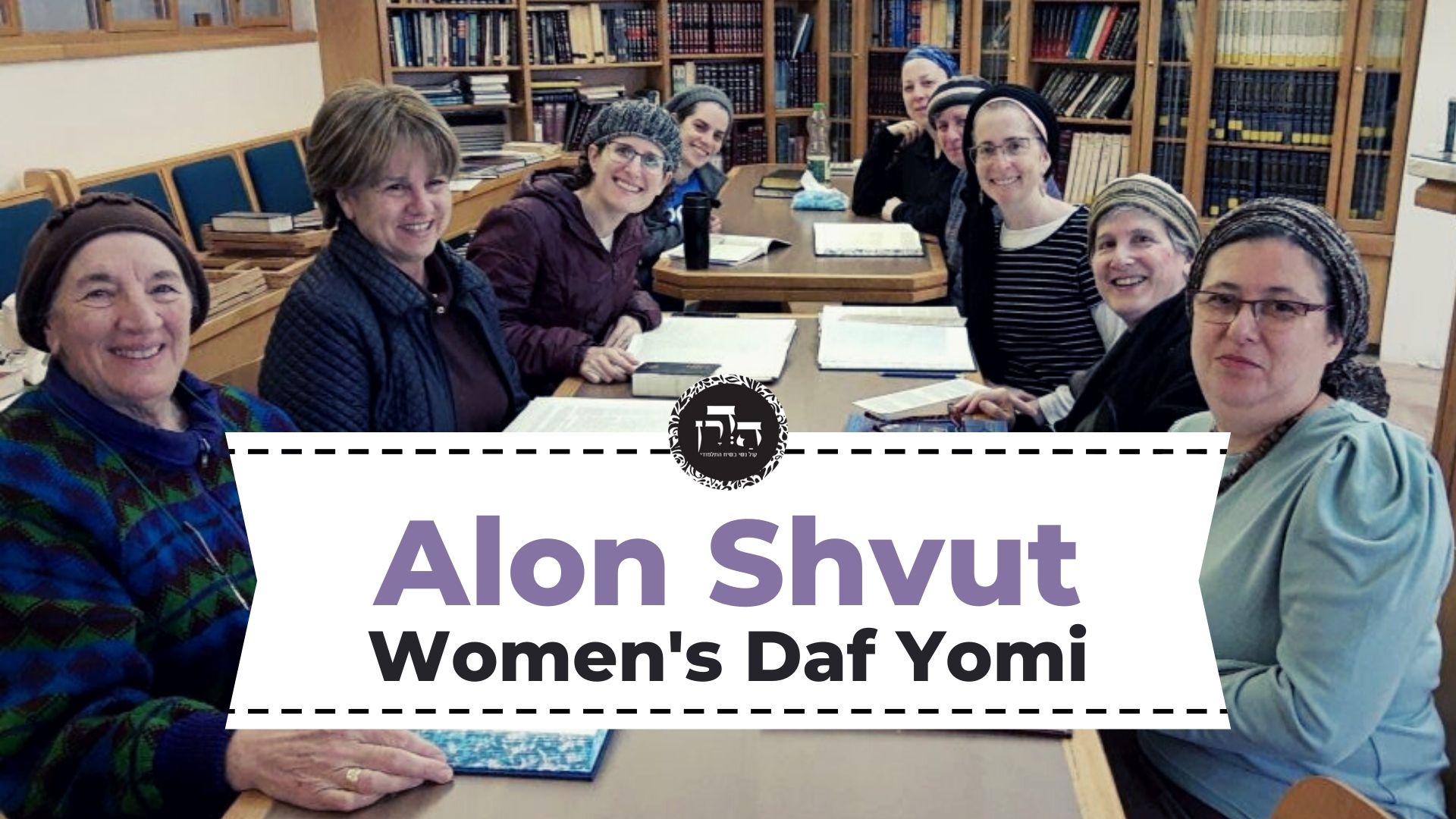Yoma 69
וְסֵיפָא אִיצְטְרִיכָא לֵיהּ: פּוֹשְׁטִין וּמְקַפְּלִין וּמַנִּיחִין תַּחַת רָאשֵׁיהֶם.
That mishna’s teaching highlighting the prohibition to sleep in priestly vestments is needed for the latter clause of that mishna, which states: They remove their priestly vestments and fold them and place them under their heads. Since they are allowed to sleep on them, it must be emphasized that they may not sleep while wearing them.
פּוֹשְׁטִין וּמְקַפְּלִין וּמַנִּיחִין אוֹתָן תַּחַת רָאשֵׁיהֶן, שָׁמְעַתְּ מִינַּהּ בִּגְדֵי כְּהוּנָּה נִיתְּנוּ לֵיהָנוֹת בָּהֶן! אָמַר רַב פָּפָּא: לָא תֵּימָא תַּחַת רָאשֵׁיהֶן, אֶלָּא אֵימָא כְּנֶגֶד רָאשֵׁיהֶן. אָמַר רַב מְשַׁרְשְׁיָא: שָׁמְעַתְּ מִינַּהּ תְּפִילִּין מִן הַצַּד שַׁפִּיר דָּמֵי.
The Gemara considers resolving the dilemma from the latter clause: They remove their priestly vestments and fold them and place them under their heads. The Gemara suggests: Learn from this that it is permitted to derive benefit from priestly vestments. Rav Pappa said: Do not say that the mishna means they may actually place the vestments under their heads as a pillow; rather, say that the mishna permits the vestments to be placed only next to their heads. Rav Mesharshiyya said: Given this understanding of that mishna, one can learn from here that one who places phylacteries to the side of his head when he sleeps has done well; there is no concern that he will turn over in his sleep and lie upon them.
הָכִי נָמֵי מִסְתַּבְּרָא דִּכְנֶגֶד רָאשֵׁיהֶן, דְּאִי סָלְקָא דַעְתָּךְ תַּחַת רָאשֵׁיהֶן, וְתִיפּוֹק לִי מִשּׁוּם כִּלְאַיִם — דְּהָא אִיכָּא אַבְנֵט. וּנְהִי נָמֵי דְּנִיתְּנוּ לֵיהָנוֹת בָּהֶן — הָא מִתְהֲנֵי מִכִּלְאַיִם!
So too, it is reasonable to say that the mishna permits the vestments to be placed only next to their heads and not under their heads; as, if it could enter your mind to say that the mishna permits the vestments to be placed under their heads, and I would derive that it is prohibited due to the fact the priestly vestments contain a forbidden mixture of diverse kinds, as among them there is the belt, which is woven from a mixture of wool and linen. And even if it is assumed that it is permitted to derive benefit from priestly vestments, it would still be prohibited to lie upon them because by doing so the priests would be deriving benefit from a garment made of diverse kinds.
הָנִיחָא לְמַאן דְּאָמַר אַבְנֵטוֹ שֶׁל כֹּהֵן גָּדוֹל זֶה הוּא אַבְנֵטוֹ שֶׁל כֹּהֵן הֶדְיוֹט. אֶלָּא לְמַאן דְּאָמַר אַבְנֵטוֹ שֶׁל כֹּהֵן גָּדוֹל לֹא זֶה הוּא אַבְנֵטוֹ שֶׁל כֹּהֵן הֶדְיוֹט, מַאי אִיכָּא לְמֵימַר!
The Gemara elaborates on the preceding argument: If one claims that the mishna permits priests to sleep upon their vestments, it works out well according to the one who said: The belt of the High Priest worn on Yom Kippur, which does not contain diverse kinds, is the same as the belt of a common priest. According to this view, the common priest’s belt does not contain diverse kinds, and therefore it may be permitted for a priest to sleep upon it. However, according to the one who said that the High Priest’s belt on Yom Kippur is not the same as the belt of a common priest, and that the belt of the common priest is made of diverse kinds, what is there to say? How could the mishna possibly permit priests to sleep upon their vestments?
וְכִי תֵּימָא: כִּלְאַיִם בִּלְבִישָׁה וְהַעֲלָאָה — הוּא דַּאֲסִיר, בְּהַצָּעָה שְׁרֵי, וְהָתַנְיָא: ״לֹא יַעֲלֶה עָלֶיךָ״, אֲבָל אַתָּה מוּתָּר לְהַצִּיעוֹ תַּחְתֶּיךָ. אֲבָל אָמְרוּ חֲכָמִים: אָסוּר לַעֲשׂוֹת כֵּן, שֶׁמָּא תִּיכָּרֵךְ נִימָא אַחַת עַל בְּשָׂרוֹ.
And if you say that with regard to the prohibition of diverse kinds only wearing or placing the garment upon oneself is prohibited, but spreading them out and lying upon them on is permitted, and as such it should be permitted for the priests to sleep upon their vestments, this is incorrect. As, wasn’t it taught in a baraita that the verse states: “Neither shall there come upon you a garment of diverse kinds”(Leviticus 19:19), which implies: But you are permitted to spread it beneath you to lie upon. This is true according to Torah law, but the Sages said: It is prohibited to do so, lest a fiber wrap upon his flesh, which would lead to the transgression of the Torah prohibition.
וְכִי תֵּימָא דְּמַפְסֵיק לֵיהּ מִידֵּי בֵּינֵי בֵּינֵי — וְהָאָמַר רַבִּי שִׁמְעוֹן בֶּן פַּזִּי אָמַר רַבִּי יְהוֹשֻׁעַ בֶּן לֵוִי אָמַר רַבִּי מִשּׁוּם קְהָלָא קַדִּישָׁא שֶׁבִּירוּשָׁלַיִם: אֲפִילּוּ עֶשֶׂר מַצָּעוֹת זוֹ עַל גַּב זוֹ וְכִלְאַיִם תַּחְתֵּיהֶן — אָסוּר לִישַׁן עֲלֵיהֶן. אֶלָּא לָאו שְׁמַע מִינַּהּ: כְּנֶגֶד רָאשֵׁיהֶן, שְׁמַע מִינַּהּ.
And if you say that a priest could still avoid the prohibition of diverse kinds by placing a separation between himself and the belt containing diverse kinds, didn’t Rabbi Shimon ben Pazi say that Rabbi Yehoshua ben Levi said that Rabbi Yehuda HaNasi said in the name of the holy community in Jerusalem: Even if there are ten mattresses piled one atop the other and a garment of diverse kinds is placed underneath them all, it is prohibited to sleep upon them? This is because the rabbinic decree is applied equally to all cases irrespective of whether the original concern exists. Therefore, there can be no way for the priests to sleep upon the vestments without transgressing the prohibition of diverse kinds. Rather, must one not conclude from the preceding discussion that the mishna permits the vestments to be placed only next to their heads? The Gemara concludes: Learn from it that this is indeed so.
רַב אָשֵׁי אָמַר: לְעוֹלָם תַּחַת רָאשֵׁיהֶן, וְהָא קָא מִתְהֲנֵי מִכִּלְאַיִם — בִּגְדֵי כְהוּנָּה קָשִׁין הֵן. כִּי הָא דְּאָמַר רַב הוּנָא בְּרֵיהּ דְּרַבִּי יְהוֹשֻׁעַ: הַאי נַמְטָא גַּמְדָּא דְּנַרֶשׁ — שַׁרְיָא.
Rav Ashi said: Actually, the mishna may be understood as permitting the vestments to be placed under their heads. One should not object that by doing so the priests would be deriving benefit from a garment made of diverse kinds because priestly vestments, and specifically the belt, are stiff, and therefore the prohibition of diverse kinds does not apply to them. This is in accordance with that which Rav Huna, son of Rabbi Yehoshua, said: This stiff felt [namta], made of diverse kinds, that is produced in the city of Neresh, is permitted, since a stiff object does not wrap around the body to provide warmth, and therefore the person wearing is not considered to have derived benefit from it.
תָּא שְׁמַע: בִּגְדֵי כְהוּנָּה, הַיּוֹצֵא בָּהֶן לַמְּדִינָה — אָסוּר. וּבַמִּקְדָּשׁ, בֵּין בִּשְׁעַת עֲבוֹדָה בֵּין שֶׁלֹּא בִּשְׁעַת עֲבוֹדָה — מוּתָּר, מִפְּנֵי שֶׁבִּגְדֵי כְהוּנָּה נִיתְּנוּ לֵיהָנוֹת בָּהֶן. שְׁמַע מִינַּהּ.
Since the mishna’s intention is uncertain, it cannot provide a clear proof for the dilemma of whether it is permitted to derive benefit from priestly vestments. The Gemara therefore suggests another proof: Come and hear an explicit baraita concerning this issue: With regard to priestly vestments, it is prohibited to go out to the country, i.e., outside the Temple, while wearing them, but in the Temple it is permitted for the priests to wear them, whether during the Temple service or not during the service, due to the fact that it is permitted to derive benefit from priestly vestments. Learn from this that it is indeed permitted.
וּבַמְּדִינָה לָא? וְהָתַנְיָא: בְּעֶשְׂרִים וַחֲמִשָּׁה [בְּטֵבֵת] יוֹם הַר גְּרִזִים [הוּא], דְּלָא לְמִסְפַּד?
§ The baraita taught that the priestly vestments may not be worn outside the Temple. The Gemara challenges this: Is it really not permitted to wear priestly vestments in the country? Wasn’t it taught in another baraita, in Megillat Ta’anit: The twenty-fifth of Tevet is known as the day of Mount Gerizim, which was established as a joyful day, and therefore eulogizing is not permitted.
יוֹם שֶׁבִּקְּשׁוּ כּוּתִיִּים אֶת בֵּית אֱלֹהֵינוּ מֵאֲלֶכְּסַנְדְּרוֹס מוֹקְדוֹן לְהַחְרִיבוֹ, וְנָתְנוּ לָהֶם. בָּאוּ וְהוֹדִיעוּ אֶת שִׁמְעוֹן הַצַּדִּיק. מֶה עָשָׂה? לָבַשׁ בִּגְדֵי כְהוּנָּה, וְנִתְעַטֵּף בְּבִגְדֵי כְהוּנָּה, וּמִיַּקִּירֵי יִשְׂרָאֵל עִמּוֹ, וַאֲבוּקוֹת שֶׁל אוֹר בִּידֵיהֶן. וְכׇל הַלַּיְלָה, הַלָּלוּ הוֹלְכִים מִצַּד זֶה, וְהַלָּלוּ הוֹלְכִים מִצַּד זֶה, עַד שֶׁעָלָה עַמּוּד הַשַּׁחַר.
What occurred on that date? It was on that day that the Samaritans [kutim] requested the House of our Lord from Alexander the Macedonian in order to destroy it, and he gave it to them, i.e., he gave them permission to destroy it. People came and informed the High Priest, Shimon HaTzaddik, of what had transpired. What did he do? He donned the priestly vestments and wrapped himself in the priestly vestments. And the nobles of the Jewish People were with him, with torches of fire in their hands. And all that night, these, the representatives of the Jewish people, approached from this side, and those, the armies of Alexander and the Samaritans, approached from that side, until dawn, when they finally saw one another.
כֵּיוָן שֶׁעָלָה עַמּוּד הַשַּׁחַר, אָמַר לָהֶם: מִי הַלָּלוּ? אָמְרוּ לוֹ: יְהוּדִים שֶׁמָּרְדוּ בְּךָ. כֵּיוָן שֶׁהִגִּיעַ לְאַנְטִיפַּטְרֵס זָרְחָה חַמָּה וּפָגְעוּ זֶה בָּזֶה. כֵּיוָן שֶׁרָאָה לְשִׁמְעוֹן הַצַּדִּיק, יָרַד מִמֶּרְכַּבְתּוֹ וְהִשְׁתַּחֲוָה לְפָנָיו. אָמְרוּ לוֹ: מֶלֶךְ גָּדוֹל כְּמוֹתְךָ יִשְׁתַּחֲוֶה לִיהוּדִי זֶה?! אָמַר לָהֶם: דְּמוּת דְּיוֹקְנוֹ שֶׁל זֶה מְנַצַּחַת לְפָנַי בְּבֵית מִלְחַמְתִּי.
When dawn arrived, Alexander said to the Samaritans: Who are these people coming to meet us? They said to him: These are the Jews who rebelled against you. When he reached Antipatris, the sun shone and the two camps met each other. When Alexander saw Shimon HaTzaddik, he descended from his chariot and bowed before him. His escorts said to him: Should an important king such as you bow to this Jew? He said to them: I do so because the image of this man’s face is victorious before me on my battlefields, i.e., when I fight I see his image going before me as a sign of victory, and therefore I know that he has supreme sanctity.
אָמַר לָהֶם: לָמָּה בָּאתֶם? אָמְרוּ: אֶפְשָׁר בַּיִת שֶׁמִּתְפַּלְּלִים בּוֹ עָלֶיךָ וְעַל מַלְכוּתְךָ שֶׁלֹּא תֶּחְרַב, יַתְעוּךָ גּוֹיִם לְהַחְרִיבוֹ? אָמַר לָהֶם: מִי הַלָּלוּ? אָמְרוּ לוֹ: כּוּתִיִּים הַלָּלוּ, שֶׁעוֹמְדִים לְפָנֶיךָ. אָמַר לָהֶם: הֲרֵי הֵם מְסוּרִין בִּידֵיכֶם.
He said to the representatives of the Jewish people: Why have you come? They said to him: Is it possible that the Temple, the house in which we pray for you and for your kingdom not to be destroyed, gentiles will try to mislead you into destroying it, and we would remain silent and not tell you? He said to them: Who are these people who want to destroy it? The Jews said to him: They are these Samaritans who stand before you. He said to them: If so, they are delivered into your hands to deal with them as you please.
מִיָּד נְקָבוּם בְּעִקְבֵיהֶם וּתְלָאוּם בְּזַנְבֵי סוּסֵיהֶם, וְהָיוּ מְגָרְרִין אוֹתָן עַל הַקּוֹצִים וְעַל הַבַּרְקָנִים, עַד שֶׁהִגִּיעוּ לְהַר גְּרִיזִים. כֵּיוָן שֶׁהִגִּיעוּ לְהַר גְּרִיזִים — חֲרָשׁוּהוּ, וּזְרָעוּהוּ כַּרְשִׁינִין, כְּדֶרֶךְ שֶׁבִּקְּשׁוּ לַעֲשׂוֹת לְבֵית אֱלֹהֵינוּ. וְאוֹתוֹ הַיּוֹם עֲשָׂאוּהוּ יוֹם טוֹב.
Immediately, they stabbed the Samaritans in their heels and hung them from their horses’ tails and continued to drag them over the thorns and thistles until they reached Mount Gerizim. When they arrived at Mount Gerizim, where the Samaritans had their temple, they plowed it over and seeded the area with leeks, a symbol of total destruction. This was just as they had sought to do to the House of our Lord. And they made that day a festival to celebrate the salvation of the Temple and the defeat of the Samaritans.
אִי בָּעֵית אֵימָא: רְאוּיִין לְבִגְדֵי כְהוּנָּה. וְאִי בָּעֵית אֵימָא: ״עֵת לַעֲשׂוֹת לַה׳ הֵפֵרוּ תּוֹרָתֶךָ״.
It is apparent from the baraita that Shimon HaTzaddik wore the priestly vestments even outside the Temple. This would seem to be in contravention of the ruling of the other baraita prohibiting this. The Gemara resolves the contradiction: If you wish, say Shimon HaTzaddik did not wear a set of genuine, sanctified priestly vestments; rather, he wore garments that were fitting to be priestly vestments in that they were made of the same material and design. And if you wish, say instead that he indeed wore a set of genuine priestly vestments, but in times of great need, such as when one seeks to prevent the destruction of the Temple, it is permitted to violate the halakha, as indicated by the verse: “It is time to act for the Lord, they have nullified your Torah” (Psalms 119:126).
חַזַּן הַכְּנֶסֶת נוֹטֵל סֵפֶר תּוֹרָה: שְׁמַע מִינַּהּ חוֹלְקִין כָּבוֹד לְתַלְמִיד בִּמְקוֹם הָרַב! אָמַר אַבָּיֵי: כּוּלָּהּ מִשּׁוּם כְּבוֹדוֹ דְּכֹהֵן גָּדוֹל הִיא.
§ It was taught in the mishna: The synagogue attendant takes a Torah scroll and gives it to the head of the synagogue, who gives it to the deputy High Priest, who gives it to the High Priest. The Gemara suggests: Learn from here that honor may be given to a student in the presence of the teacher. Although the High Priest is considered everyone’s teacher and master, honor was nevertheless extended to other individuals without fear of impugning the High Priest’s honor. Abaye said: A proof may not be adduced from here because the entire process is for the honor of the High Priest. The passing of the Torah scroll to people of increasing importance demonstrates that the High Priest is considered the most important of all those present.
וְכֹהֵן גָּדוֹל עוֹמֵד. מִכְּלָל שֶׁהוּא יוֹשֵׁב, וְהָא אֲנַן תְּנַן:
§ It was further taught in the mishna: The High Priest stands and receives the scroll from the Deputy. By inference, until that point he had been sitting. But didn’t we learn in a mishna:
אֵין יְשִׁיבָה בָּעֲזָרָה אֶלָּא לְמַלְכֵי בֵּית דָּוִד בִּלְבַד. שֶׁנֶּאֱמַר: ״וַיָּבֹא הַמֶּלֶךְ דָּוִד וַיֵּשֶׁב לִפְנֵי ה׳״? כִּדְאָמַר רַב חִסְדָּא — בְּעֶזְרַת נָשִׁים, הָכָא נָמֵי — בְּעֶזְרַת נָשִׁים.
Sitting in the Temple courtyard is permitted only for kings of the House of David, as it is stated: “Then King David went in and sat before the Lord” (I Chronicles 17:16)? How, then, could the High Priest have been sitting? The Gemara explains: As Rav Ḥisda said in a similar context: This took place not in the Israelite courtyard, where the prohibition against sitting applies, but in the women’s courtyard. Here, too, the reading was in the women’s courtyard, where it is permitted to sit.
וְהֵיכָא אִיתְּמַר דְּרַב חִסְדָּא? אַהָא. מֵיתִיבִי: דְּתַנְיָא, הֵיכָן קוֹרִין בּוֹ — בָּעֲזָרָה, רַבִּי אֱלִיעֶזֶר בֶּן יַעֲקֹב אוֹמֵר: בְּהַר הַבַּיִת, שֶׁנֶּאֱמַר: ״וַיִּקְרָא בוֹ לִפְנֵי הָרְחוֹב אֲשֶׁר לִפְנֵי שַׁעַר הַמַּיִם״, וְאָמַר רַב חִסְדָּא: בְּעֶזְרַת נָשִׁים.
§ The Gemara clarifies: And where was this statement of Rav Ḥisda originally stated? It was stated in relation to the following: The Sages raised an objection based on that which was taught in a baraita: Where did they read the Torah scroll in fulfillment of the mitzva of assembly, in which the Torah is publicly read on the Sukkot following the Sabbatical Year? It was read in the Temple courtyard. Rabbi Eliezer ben Ya’akov says: It is read on the Temple Mount, as it is stated concerning the public reading performed by Ezra: “And he read from it before the wide road that was before the Gate of the Water” (Nehemiah 8:3). And Rav Ḥisda said: The courtyard referred to by the first tanna is the women’s courtyard.
״וַיְבָרֶךְ עֶזְרָא אֶת ה׳ הָאֱלֹהִים הַגָּדוֹל״. מַאי ״גָּדוֹל״? אָמַר רַב יוֹסֵף אָמַר רַב: שֶׁגִּדְּלוֹ בְּשֵׁם הַמְפוֹרָשׁ. רַב גִּידֵּל אָמַר: ״בָּרוּךְ ה׳ אֱלֹהֵי יִשְׂרָאֵל מִן הָעוֹלָם וְעַד הָעוֹלָם״.
Apropos the verse in Nehemiah, the Gemara interprets an adjacent verse homiletically. It is stated: “And Ezra blessed the Lord, the great God” (Nehemiah 8:6). The Gemara asks: What is the meaning of “great” here? Rav Yosef said that Rav said: It means that he ascribed greatness to Him by enunciating God’s explicit name. Rav Giddel said: He established that one should say at the conclusion of every blessing: “Blessed be the Lord, God of Israel, from eternity to eternity” (I Chronicles 16:36).
אֲמַר לֵיהּ אַבָּיֵי לְרַב דִּימִי: וְדִילְמָא שֶׁגִּידְּלוֹ בְּשֵׁם הַמְפוֹרָשׁ? אֲמַר לֵיהּ: אֵין אוֹמְרִים שֵׁם הַמְפוֹרָשׁ בִּגְבוּלִים.
Abaye said to Rav Dimi: Why does Rav Giddel interpret it this way? Perhaps the meaning of “great” is that he ascribed greatness to Him by enunciating God’s explicit name? Rav Dimi said to him: The explicit name may not be enunciated in the provinces, i.e., outside the Temple courtyard.
וְלָא? וְהָכְתִיב: ״וַיַּעֲמוֹד עֶזְרָא הַסּוֹפֵר עַל מִגְדַּל עֵץ אֲשֶׁר עָשׂוּ לַדָּבָר״. וְאָמַר רַב גִּידֵּל: שֶׁגִּדְּלוֹ בְּשֵׁם הַמְפוֹרָשׁ! הוֹרָאַת שָׁעָה הָיְתָה.
The Gemara asks: And is this really not permitted? Isn’t it written: “And Ezra the Scribe stood upon a pulpit of wood, which they had made for the purpose… and Ezra blessed the Lord, the great God” (Nehemiah 8:4-6); and Rav Giddel said: “Great” in this verse means that he ascribed greatness to Him by enunciating God’s explicit name. Since this event took place outside the Temple (see Nehemiah 8:3), it suggests that God’s explicit name may indeed be enunciated outside the Temple. The Gemara answers: That cannot be proven from here because the permission to use God’s explicit name in that context was a provisional edict issued in exigent circumstances, since the people had uniquely come together in a prayerful commitment to God.
״וַיִּצְעֲקוּ אֶל ה׳ אֱלֹהִים בְּקוֹל גָּדוֹל״. מַאי אֲמוּר? אָמַר רַב, וְאִיתֵּימָא רַבִּי יוֹחָנָן: בִּיָּיא בִּיָּיא הַיְינוּ הַאי דְּאַחְרְבֵיהּ לְמַקְדְּשָׁא וְקַלְיֵהּ לְהֵיכְלֵיהּ וְקַטְלִינְהוּ לְכוּלְּהוּ צַדִּיקֵי וְאַגְלִינְהוּ לְיִשְׂרָאֵל מֵאַרְעֲהוֹן, וַעֲדַיִין מְרַקֵּד בֵּינַן. כְּלוּם יְהַבְתֵּיהּ לַן אֶלָּא לְקַבּוֹלֵי בֵּיהּ אַגְרָא? לָא אִיהוּ בָּעֵינַן, וְלָא אַגְרֵיהּ בָּעֵינַן!
The Gemara recounts the event described in the verses: The verse states: And they cried with a loud voice to the Lord their God (Nehemiah 9:4). What was said? Rav said, and some say it was Rabbi Yoḥanan who said: Woe, woe. It is this, i.e., the evil inclination for idol worship, that destroyed the Temple, and burned its Sanctuary, and murdered all the righteous ones, and caused the Jewish people to be exiled from their land. And it still dances among us, i.e., it still affects us. Didn’t You give it to us solely for the purpose of our receiving reward for overcoming it? We do not want it, and we do not want its reward. We are prepared to forgo the potential rewards for overcoming the evil inclination as long as it departs from us.
נְפַל לְהוּ פִּיתְקָא מֵרְקִיעָא, דַּהֲוָה כְּתִב בֵּהּ ״אֱמֶת״.
In response to their prayer a note fell to them from the heavens upon which was written: Truth, indicating that God accepted their request.
אָמַר רַב חֲנִינָא: שְׁמַע מִינַּהּ חוֹתָמוֹ שֶׁל הַקָּדוֹשׁ בָּרוּךְ הוּא ״אֱמֶת״.
The Gemara makes a parenthetical observation. Rav Ḥanina said: Learn from this that the seal of the Holy One, Blessed be He, is truth.
אוֹתִיבוּ בְּתַעֲנִיתָא תְּלָתָא יוֹמִין וּתְלָתָא לֵילָוָאתָא, מַסְרוּהוּ נִיהֲלַיְהוּ. נְפַק אֲתָא כִּי גוּרְיָא דְנוּרָא מִבֵּית קָדְשֵׁי הַקֳּדָשִׁים, אֲמַר לְהוּ נָבִיא לְיִשְׂרָאֵל: הַיְינוּ יִצְרָא דַעֲבוֹדָה זָרָה, שֶׁנֶּאֱמַר: ״וַיֹּאמֶר זֹאת הָרִשְׁעָה״.
In response to the indication of divine acceptance, they observed a fast for three days and three nights, and He delivered the evil inclination to them. A form of a fiery lion cub came forth from the chamber of the Holy of Holies. Zechariah the prophet said to the Jewish people: This is the evil inclination for idol worship, as it is stated in the verse that refers to this event: “And he said: This is the evil one” (Zechariah 5:8). The use of the word “this” indicates that the evil inclination was perceived in a physical form.
בַּהֲדֵי דְּתַפְסוּהּ לֵיהּ אִשְׁתְּמִיט בִּינִיתָא מִמַּזְּיֵיא וּרְמָא קָלָא, וַאֲזַל קָלֵיהּ אַרְבַּע מְאָה פַּרְסֵי. אָמְרוּ: הֵיכִי נַעֲבֵיד? דִּילְמָא חַס וְשָׁלוֹם מְרַחֲמִי עֲלֵיהּ מִן שְׁמַיָּא. אֲמַר לְהוּ נָבִיא: שַׁדְיוּהוּ בְּדוּדָא דַאֲבָרָא, וְחַפְיוּהוּ לְפוּמֵּיהּ בַּאֲבָרָא, דַּאֲבָרָא מִשְׁאָב שָׁאֵיב קָלָא, שֶׁנֶּאֱמַר: ״וַיֹּאמֶר זֹאת הָרִשְׁעָה וַיַּשְׁלֵךְ אוֹתָהּ אֶל תּוֹךְ הָאֵיפָה וַיַּשְׁלֵךְ אֶת אֶבֶן הָעוֹפֶרֶת אֶל פִּיהָ״.
When they caught hold of it one of its hairs fell, and it let out a shriek of pain that was heard for four hundred parasangs. They said: What should we do to kill it? Perhaps, Heaven forfend, they will have mercy upon him from Heaven, since it cries out so much. The prophet said to them: Throw it into a container made of lead and seal the opening with lead, since lead absorbs sound. As it is stated: “And he said: This is the evil one. And he cast it down into the midst of the measure, and he cast a stone of lead upon its opening” (Zechariah 5:8). They followed this advice and were freed of the evil inclination for idol worship.
אֲמַרוּ: הוֹאִיל וְעֵת רָצוֹן הוּא, נִבְעֵי רַחֲמֵי אַיִּצְרָא דַעֲבֵירָה. בְּעוֹ רַחֲמֵי וְאִמְּסַר בִּידַיְיהוּ.
When they saw that the evil inclination for idol worship was delivered into their hands as they requested, the Sages said: Since it is an auspicious time, let us pray also concerning the evil inclination for sin in the area of sexual relationships. They prayed, and it was also delivered into their hands.
אֲמַר לְהוּ: חֲזוֹ, דְּאִי קָטְלִיתוּ לֵיהּ לְהָהוּא, כָּלֵי עָלְמָא. חַבְשׁוּהוּ תְּלָתָא יוֹמֵי, וּבָעוּ בֵּיעֲתָא בַּת יוֹמָא בְּכׇל אֶרֶץ יִשְׂרָאֵל וְלָא אִשְׁתְּכַח. אָמְרִי: הֵיכִי נַעֲבֵיד? נִקְטְלֵיהּ — כָּלֵי עָלְמָא, נִיבְעֵי רַחֲמֵי אַפַּלְגָא — פַּלְגָא בִּרְקִיעָא לָא יָהֲבִי. כַּחְלִינְהוּ לְעֵינֵיהּ וְשַׁבְקוּהוּ, וְאַהְנִי דְּלָא מִיגָּרֵי בֵּיהּ לְאִינִישׁ בְּקָרִיבְתֵּהּ.
Zechariah the prophet said to them: See and understand that if you kill this evil inclination the world will be destroyed because as a result there will also no longer be any desire to procreate. They followed his warning, and instead of killing the evil inclination they imprisoned it for three days. At that time, people searched for a fresh egg throughout all of Eretz Yisrael and could not find one. Since the inclination to reproduce was quashed, the chickens stopped laying eggs. They said: What should we do? If we kill it, the world will be destroyed. If we pray for half, i.e., that only half its power be annulled, nothing will be achieved because Heaven does not grant half gifts, only whole gifts. What did they do? They gouged out its eyes, effectively limiting its power, and set it free. And this was effective to the extent that a person is no longer aroused to commit incest with his close relatives.
בְּמַעְרְבָא מַתְנוּ הָכִי: רַב גִּידֵּל אָמַר: ״גָּדוֹל״ — שֶׁגִּדְּלוֹ בְּשֵׁם הַמְפוֹרָשׁ, וְרַב מַתְנָא אָמַר: ״הָאֵל הַגָּדוֹל הַגִּבּוֹר וְהַנּוֹרָא״.
The Gemara returns to its discussion of the verse in Nehemiah cited above: In the West, i.e., Eretz Yisrael, they taught the debate concerning the verse “the Lord, the great God” as follows: Rav Giddel said: “Great” means that he ascribed greatness to Him by enunciating God’s explicit name. And Rav Mattana said: They reinserted the following appellations of God into their prayers: “The great, the mighty, and the awesome God” (Nehemiah 9:32).
וְהָא דְּרַב מַתְנָא מָטְיָיא לִדְרַבִּי יְהוֹשֻׁעַ בֶּן לֵוִי. דְּאָמַר רַבִּי יְהוֹשֻׁעַ בֶּן לֵוִי: לָמָּה נִקְרָא שְׁמָן אַנְשֵׁי כְּנֶסֶת הַגְּדוֹלָה — שֶׁהֶחְזִירוּ עֲטָרָה לְיוֹשְׁנָהּ. אֲתָא מֹשֶׁה, אָמַר: ״הָאֵל הַגָּדוֹל הַגִּבּוֹר וְהַנּוֹרָא״. אֲתָא יִרְמְיָה וַאֲמַר: גּוֹיִם מְקַרְקְרִין בְּהֵיכָלוֹ, אַיֵּה נוֹרְאוֹתָיו? לָא אֲמַר ״נוֹרָא״. אֲתָא דָּנִיאֵל אֲמַר: גּוֹיִם מִשְׁתַּעְבְּדִים בְּבָנָיו, אַיֵּה גְּבוּרוֹתָיו? לָא אֲמַר ״גִּבּוֹר״.
The Gemara comments: This interpretation that Rav Mattana said leans to, i.e., is consonant with, the exposition of Rabbi Yehoshua ben Levi. As Rabbi Yehoshua ben Levi said: Why are the Sages of those generations called the members of the Great Assembly? It is because they returned the crown of the Holy One, Blessed be He, to its former glory. How so? Moses came and said in his prayer: “The great, the mighty, and the awesomeGod” (Deuteronomy 10:17). Jeremiah the prophet came and said: Gentiles, i.e., the minions of Nebuchadnezzar, are carousing in His sanctuary; where is His awesomeness? Therefore, he did not say awesome in his prayer: “The great God, the mighty Lord of Hosts, is His name” (Jeremiah 32:18). Daniel came and said: Gentiles are enslaving His children; where is His might? Therefore he did not say mighty in his prayer: “The great and awesome God” (Daniel 9:4).
אֲתוֹ אִינְהוּ וְאָמְרוּ: אַדְּרַבָּה, זוֹ הִיא (גְּבוּרַת) גְּבוּרָתוֹ: שֶׁכּוֹבֵשׁ אֶת יִצְרוֹ — שֶׁנּוֹתֵן אֶרֶךְ אַפַּיִם לָרְשָׁעִים. וְאֵלּוּ הֵן נוֹרְאוֹתָיו — שֶׁאִלְמָלֵא מוֹרָאוֹ שֶׁל הַקָּדוֹשׁ בָּרוּךְ הוּא הֵיאַךְ אוּמָּה אַחַת יְכוֹלָה לְהִתְקַיֵּים בֵּין הָאוּמּוֹת?
The members of the Great Assembly came and said: On the contrary, this is the might of His might, i.e., this is the fullest expression of it, that He conquers His inclination in that He exercises patience toward the wicked. God’s anger is flared by the gentile nations’ enslavement of His people, yet He expresses tremendous might by suppressing His anger and holding back from punishing them immediately. Therefore, it is still appropriate to refer to God as mighty. And these acts also express His awesomeness: Were it not for the awesomeness of the Holy One, Blessed be He, how could one people, i.e., the Jewish people, who are alone and hated by the gentile nations, survive among the nations?
וְרַבָּנַן: הֵיכִי עָבְדִי הָכִי וְעָקְרִי תַּקַּנְתָּא דְּתַקֵּין מֹשֶׁה? אָמַר רַבִּי אֶלְעָזָר: מִתּוֹךְ שֶׁיּוֹדְעִין בְּהַקָּדוֹשׁ בָּרוּךְ הוּא שֶׁאֲמִתִּי הוּא, לְפִיכָךְ לֹא כִּיזְּבוּ בּוֹ.
The Gemara asks: And the Rabbis, i.e., Jeremiah and Daniel, how could they do this and uproot an ordinance instituted by Moses, the greatest teacher, who instituted the mention of these attributes in prayer? Rabbi Elazar said: They did so because they knew of the Holy One Blessed be He, that He is truthful and hates a lie. Consequently, they did not speak falsely about Him. Since they did not perceive His attributes of might and awesomeness, they did not refer to them; therefore, they cannot be criticized for doing so.
וְקוֹרֵא ״אַחֲרֵי מוֹת״ וְ״אַךְ בֶּעָשׂוֹר״. וּרְמִינְהִי: מְדַלְּגִין בַּנָּבִיא, וְאֵין מְדַלְּגִין בַּתּוֹרָה!
§ It was taught in the mishna: And he reads from the scroll the Torah portion beginning with the verse: “After the death” (Leviticus 16:1), and the portion beginning with the verse: “But on the tenth” (Leviticus 23:26). Although both of these portions appear in the book of Leviticus, they are not adjacent to one another. Perforce, the High Priest skipped the sections in between the two portions. The Gemara raises a contradiction: It is taught in a mishna in tractate Megilla: One may skip sections when reading the haftara in the Prophets, but one may not skip sections when reading in the Torah.
לָא קַשְׁיָא: כָּאן, בִּכְדֵי שֶׁיַּפְסִיק הַתּוּרְגְּמָן. כָּאן, בִּכְדֵי שֶׁלֹּא יַפְסִיק הַתּוּרְגְּמָן.
The Gemara answers: This is not difficult: There, in the mishna in tractate Megilla that teaches that one may not skip, the intention is that one should not skip if the sections are so far apart from one another that the delay caused by doing so will be of such length that the translator who recites the Aramaic translation will conclude his translation before the next section is reached. In that case, the community would have to remain in silence while waiting for the next section to be reached, which is considered disrespectful of the community’s honor. Here, in the case of the mishna, where it is permitted to skip, the delay caused is of such short length that the translator will still not conclude his translation before the new section is reached.
וְהָא עֲלַהּ קָתָנֵי: מְדַלְּגִין בַּנָּבִיא, וְאֵין מְדַלְּגִין בַּתּוֹרָה. וְעַד כַּמָּה מְדַלֵּג — בִּכְדֵי שֶׁלֹּא יַפְסִיק הַתּוּרְגְּמָן, הָא בַּתּוֹרָה — כְּלָל כְּלָל לָא!
The Gemara challenges this resolution: But it was taught concerning this statement in the continuation of that mishna: One may skip sections when reading in the Prophets, and one may not skip sections when reading in the Torah. And how much may one skip? One may skip when the section skipped is of such short length that when the furling of the scroll is completed the translator will still not have concluded his translation. The baraita implies that the qualification for the length of the section that may be skipped applies only to reading the Prophets, but when reading the Torah, one may not skip at all. The Gemara’s resolution is therefore refuted.
אָמַר אַבָּיֵי, לָא קַשְׁיָא: כָּאן, בְּעִנְיָן אֶחָד. כָּאן, בִּשְׁנֵי עִנְיָנִין.
The Gemara offers a different resolution. Abaye said: This is not difficult. Here, in the case of the mishna here, where it is permitted to skip, it is referring to when both sections pertain to a single topic, and therefore the listeners will be unaware that sections were skipped. There, in the mishna in tractate Megilla, which teaches that one may not skip, it is referring to when the two sections pertain to two different topics.
וְהָתַנְיָא: מְדַלְּגִין בַּתּוֹרָה בְּעִנְיָן אֶחָד, וּבַנָּבִיא בִּשְׁנֵי עִנְיָנִין. כָּאן וְכָאן בִּכְדֵי שֶׁלֹּא יַפְסִיק הַתּוּרְגְּמָן. וְאֵין מְדַלְּגִין מִנָּבִיא לְנָבִיא. וּבַנָּבִיא שֶׁל שְׁנֵים עָשָׂר מְדַלְּגִין,
As it was taught in a baraita: One may skip sections when reading in the Torah when both sections read pertain to one topic, and in the Prophets one may skip from one section to another even if they pertain to two different topics. Both here and there, one may skip only when the section skipped is of such short length that when furling is completed the translator will still not have concluded his translation. But one may not skip from one book of the Prophets to another book of the Prophets even if both pertain to the same topic, and even if the gap between them is short. However, among the books of the Twelve Prophets one may skip, as the twelve are considered one book for these purposes.



